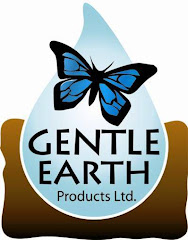
What do we know about Plastic?
We use plastic: For almost everything – Food, drinks, plastic knives and forks, kid’s toys, peanut butter jars, yogurt containers, baby bottles, sippy cups, plastic bowls, margarine containers, pop bottles, water bottles, Tupperware, milk jugs, ziploc bags and the cleaning products under the sink…the list is endless.
Why do we use plastic?  It is practical and doesn’t break – glass and ceramic dishes do not travel well and not great with kids around.
It is practical and doesn’t break – glass and ceramic dishes do not travel well and not great with kids around.
Keeps in freshness and flavor – we use it to store our leftovers, and the food for our lunches. It is Tupperware and Ziploc bags.
It is leak proof, child resistant and it’s "safe" for holding in harmful household chemicals like bleach and other toxic cleaners.
Benefits: The benefits cannot be matched by any other product on the planet – according to the Society of Plastics Industry (SPI) - the strengths they say: Light, strong, inexpensive, easily formed and shaped, works to prevent contamination (i.e. great in sterile hospital settings)…The SPI wouldn’t be biased thought, would they?
What is plastic really? The short version. It is a product that is created from “hydrocarbons” – combo of hydrogen and carbon – found primarily in crude oil (There it is again…oil…the endless topic of conversation). Small molecules a.k.a “monomers” are bonded together into chains called polymers which make up plastic. And for different types of plastics you just have to bond together different kinds of monomers. Each monomer is different and some will create more soft and pliable plastic, while others are more hard and durable. So that is the brief basics of what and how plastic is created.
Plastic Problem: The bottom line to all of this plastic use?
 We are loading up the planet with toxic chemicals. Lots of them. Continually. The serious consequences of this are not even known yet, but it definitely has Lisa Gue worried. She works at the David Suzuki Foundation as an environmental health policy analyst and is now questioning what we “do not know” about the consequences of all of this plastic use on the health of people and the planet. By discarding all of this plastic, the chemicals contained in the plastics are getting into the environment. And these chemicals are building up within our bodies, our environment and the earth.
We are loading up the planet with toxic chemicals. Lots of them. Continually. The serious consequences of this are not even known yet, but it definitely has Lisa Gue worried. She works at the David Suzuki Foundation as an environmental health policy analyst and is now questioning what we “do not know” about the consequences of all of this plastic use on the health of people and the planet. By discarding all of this plastic, the chemicals contained in the plastics are getting into the environment. And these chemicals are building up within our bodies, our environment and the earth.
The SPI takes another stand on this issue, of course, and indicates that only 9% of waste in landfills is plastic. It is a low cost alternative and environmentally friendly as they do not take up as much space in landfills as paper bags would, and they don’t product toxic fumes when they are burned. The SPI might have a point here, but do we really need to be using this much plastic, and more importantly, is it safe?
Safe?
The impact of plastics on health and the current high spread use is a growing concern. Recent studies have determined that plastic chemicals are leaching into our food. A chemical called bisphenol A is used in certain hard plastics – like those reusable plastic bottles you t ake to the gym, the baby bottles and sippy cups we are all so fond of. This is leaking out into our food…and it mimics the hormone estrogen and disrupts reproductive functions (as explained by Lisa Gue). Bisphenol A has been linked to miscarriages, birth defects and prostate cancer in some studies.
ake to the gym, the baby bottles and sippy cups we are all so fond of. This is leaking out into our food…and it mimics the hormone estrogen and disrupts reproductive functions (as explained by Lisa Gue). Bisphenol A has been linked to miscarriages, birth defects and prostate cancer in some studies.
Though Health Canada states that these products contain only a low level of BPA and do not pose any health risk. It still sounds pretty scary, doesn’t it? It is certainly making me think about switching to glass milk bottles, using cloth grocery bags and reusing glass Tupperware.
Want More Info?
Cpia.ca/epic – Plastics Recycling Info for Canada
myplasticbags.ca – List of local places to recycle your plastic bags

1 comment:
BPA only seems to be a problem when small amounts are released in heating, ie: heating plastic baby bottles. The Health Minister has stated, after over reviewing 150 different sets of data that hard plastic, reusable water bottles, 18 L. polycarbonate water cooler bottles etc. are totally safe. "There is no health risk to these items." Also, BPA is not used in typical single-serve, single dose bottles. No worries there either. For further information check the Health Minister's press release on BPA or visit cbwa.ca.
Post a Comment